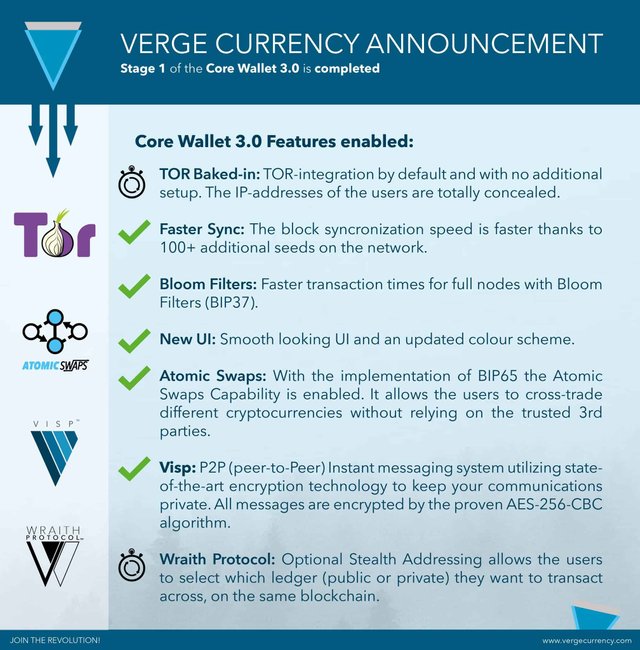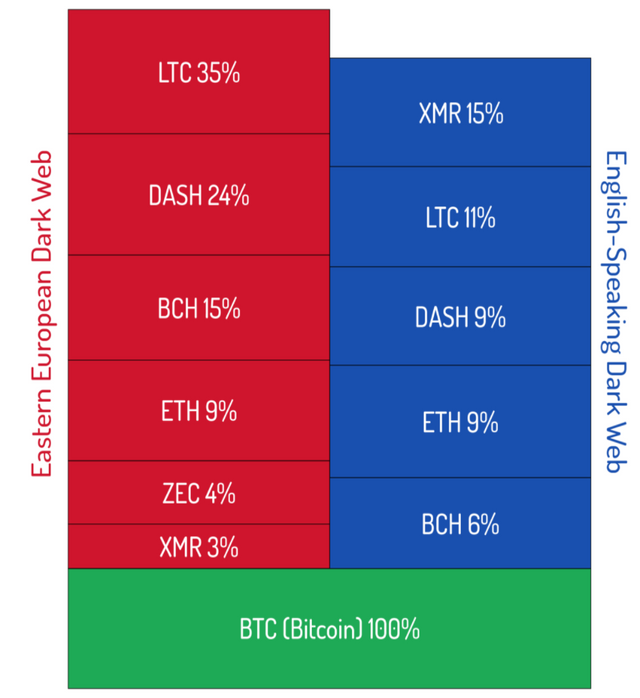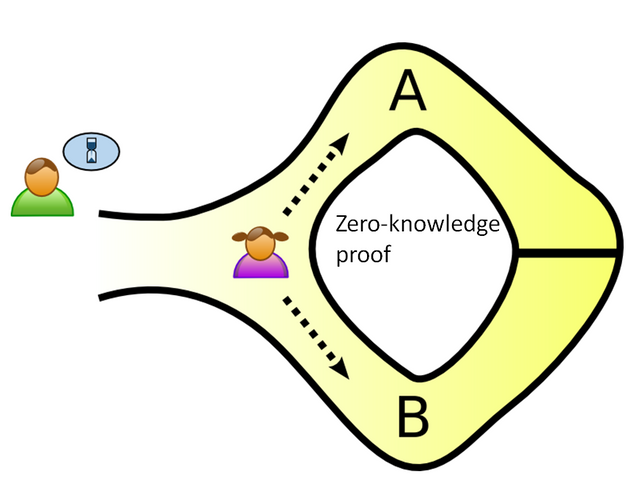
We live in a world where privacy is undervalued by many and maybe even dead in many ways. Facebook, Google, and the other tech giants know nearly everything about you, and many people have adopted the mentality of "if you don't have anything to hide, then you have nothing to worry about."
Consumers continue to adopt technologies that further compromise their privacy and seem to have no issue with it.
However, some people still place a high value on their privacy and take precaution to protect it. There is major demand in the cryptocurrency markets for privacy coins that allow for anonymous and untraceable transactions.
The demand for privacy in the cryptocurrency community
Bitcoin and the cryptocurrency community have long been associated with anarcho-capitalism and free markets, and therefore it would be natural to assume there would also be a strong demand for privacy from the community.
In the past couple years there has been a proliferation of alternative cryptocurrencies to bitcoin, which are designed to better serve specific use cases. Privacy has become one of the hottest niches within the crypto universe over the past couple years.
Bitcoin is not entirely anonymous or private
It has become common knowledge that bitcoin is in fact not an entirely anonymous or private currency. Although your identity is not attached to your transactions, your public address probably is in one way or another. This public address used to send and receive bitcoin transactions can be used to track and link all of your transactions, which are available to be viewed on bitcoin's public ledger.
Since most purchases of goods and services and even many exchanges require a form of identification, it's just a matter of getting a couple pieces of information before someone is able to link your transactions from a retailer to cryptocurrency wallets, exchanges, and wherever else you may have sent your bitcoin.
The Top 3 Privacy Coins
Today there are a number of alt-coins addressing the demand for privacy coins that allow for anonymous and untraceable transactions.
1) Monero (XMR) - The King of Privacy Coins

Monero is the most popular privacy coin and has the largest market cap among the group as well, currently the #11 ranked cryptocurrency.
Monero uses the "CryptoNight" consensus algorithm and ring confidential transactions, which are designed to improve privacy and security.
The way the ring transactions work is by bundling the public keys in transactions with other, older transactions. This is done to create a mixer that obfuscates the addresses. This is a very robust process and it's done to make blockchain analysis pretty much impossible.
For this reason, Monero is regarded as one of the most anonymous cryptocurrencies. Although the bundling of addresses leads to larger transaction sizes, it's not a big problem because Monero's block size is adaptive. The project also does hard forks frequently to make optimizations.
In addition to the ring confidential transactions, Monero uses ring signatures and stealth addresses to hide both the sender and the receiver in a transaction.
More anonymity and privacy to come
Further anonymity and privacy features are still in development, such as the Kovri router, which will be implemented to hide the origin node for transactions in I2P.
Note: I2P stands for The Invisible Internet Project, which is an anonymous network layer that allows for censorship-resistant, peer to peer communication.
For those familiar with the TOR network, I2P is similar in that they are both anonymizing proxy network. For Monero's purposes the differences between TOR & I2P are not particularly relevant.
Monero is well-established and dominant among the privacy coins, the dev team continues making improvements, and the currency has found a lot of acceptance in the dark net markets as well (second only to bitcoin in English-speaking dark net markets).
2) Zcash (ZEC) with Zero-Knowledge Proofs

Zcash uses zero-knowledge proofs to provide anonymity for its users.
For those unfamiliar, zero-knowledge proof is a method by which one party (the prover Peggy) can prove to another party (the verifier Victor) that she knows a value x, without conveying any information apart from the fact that she knows the value x.
With Zcash, the zero-knowledge proof is used to encrypt the sender/recipient addresses and transaction amounts. Meanwhile, all transactions are still validated by the blockchain.
To be more specific, Zcash uses ZK-SNARKS which is a variant of zero-knowledge proofs where it's not necessary for there to be any interaction between "prover Peggy" and "verifier Victor".
For those curious, yes, ZK-SNARKS is a super-nerd acronym and it stands for Zero Knowledge Succinct Non-interactive Arguments of Knowledge.
The Zcash protocol also makes it so that senders can’t generate a specific string unless they own the spending key for that address. The input and output values alsoneed to be equal.
It is important to note that Zcash's features and use of ZK-SNARKS don't actually guarantee anonymity. It is still possible for blockchain analysts to link transactions.
To use this privacy feature on Zcash, you will need at least 4GB of RAM which is a serious barrier for Zcash’s mainstream adoption.
Futhermore, user IP addresses aren't obfuscated unless users themselves use a routing service like I2P or TOR. Personal information linked to public data are not hidden by the Zcash protocol.
Zcash is well-established, has a strong development team and good support from the mining community as well, which probably mean that it has some staying power as a top 100 cryptocurrency (currently ranked $26).
Verge (XVG) - TOR and IP Obfuscation


When compared to coins with a huge price premium such as Monero, it made more sense for many investors to invest in a much smaller cap coin with huge upside potential.
Verge has just recently become well established and known in the cryptocurrency world, after its meteoric rise in late 2017. It's currently ranked #21 in market cap and Investors have plenty to look forward to, including a (very hyped) mystery partnership and additional features such as the Wraith Protocol.
Conclusion
As you can see from these top 3 examples, There are some solid options for privacy coins in the market that will protect your transaction information for those who value privacy, no matter what the reason.
Always keep in mind that even if you're not doing anything wrong, your transactions are no one else’s business and it can cause nothing other than an increase the safety and security of your transactions to embrace privacy technology.
Hold On for Dear Life
Posted from my blog with SteemPress : https://hodlcrypto.co/2018/04/11/protect-your-privacy-using-coins-with-untraceable-transactions/


